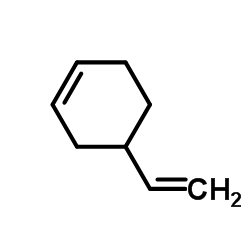Effect of bcl-2 overexpression in mice on ovotoxicity caused by 4-vinylcyclohexene.
Jodi A Flaws, Samuel L Marion, Kimberly P Miller, Patricia J Christian, Janice K Babus, Patricia B Hoyer
文献索引:Toxicol. Appl. Pharmacol. 215(1) , 51-6, (2006)
全文:HTML全文
摘要
The occupational chemical 4-vinylcyclohexene (VCH) destroys small preantral ovarian follicles in mice following repeated daily dosing. The cell survival gene bcl-2 is thought to protect against follicular death during embryogenesis because primordial follicle numbers in newborn bcl-2 overexpressing (OE) mice are greater than in wild-type (WT) controls. Thus, this study was designed to determine if overexpression of bcl-2 protects against VCH-induced follicle loss during embryonic development. Pregnant bcl-2 OE or WT mice were dosed (p.o.) daily with VCH (500 mg/kg) or sesame oil (vehicle control) on days 8-18 of pregnancy. Ovaries were collected from moms and female pups on pup postnatal day (PND) 8. Nonpregnant OE and WT females were also treated with VCH (500 mg/kg p.o.) or vehicle and evaluated in the same manner. As previously reported, ovaries from PND8 OE female pups contained 50% more primordial follicles than WT pups (P < 0.05). Unlike WT pups, relative to vehicle controls, in utero exposure to VCH resulted in a reduction in primordial (25% of control), primary (38% of control), and secondary (33% of control) follicles in ovaries of OE pups (P < 0.05). VCH had no significant effect on follicle numbers in OE or WT moms. Conversely, in nonpregnant adults, VCH did not affect WT mice but caused loss of primordial (55% of control), primary (51% of control), and secondary (69% of control) follicles in OE mice (P < 0.05). These results demonstrate that bcl-2 overexpression does not protect against, but instead increases susceptibility to VCH-induced follicle loss in transplacentally exposed or in nonpregnant mice.
相关化合物
| 结构式 | 名称/CAS号 | 分子式 | 全部文献 |
|---|---|---|---|
 |
4-乙烯环己烯
CAS:100-40-3 |
C8H12 |
|
Impact of environmental exposures on ovarian function and ro...
2012-06-15 [Toxicol. Appl. Pharmacol. 261(3) , 227-35, (2012)] |
|
Role of induction of specific hepatic cytochrome P450 isofor...
2001-09-01 [Drug Metab. Dispos. 29(9) , 1236-42, (2001)] |
|
Stereochemical aspects in the 4-vinylcyclohexene biotransfor...
2014-07-03 [Chem. Res. Toxicol. 16(1) , 56-65, (2003)] |
|
Stereochemical aspects of vinylcyclohexene bioactivation in ...
2001-02-01 [Drug Metab. Dispos. 29(2) , 179-84, (2001)] |
|
Development of an animal model for ovotoxicity using 4-vinyl...
2007-04-01 [Birth Defects Res. B Dev. Reprod. Toxicol. 80(2) , 113-25, (2007)] |